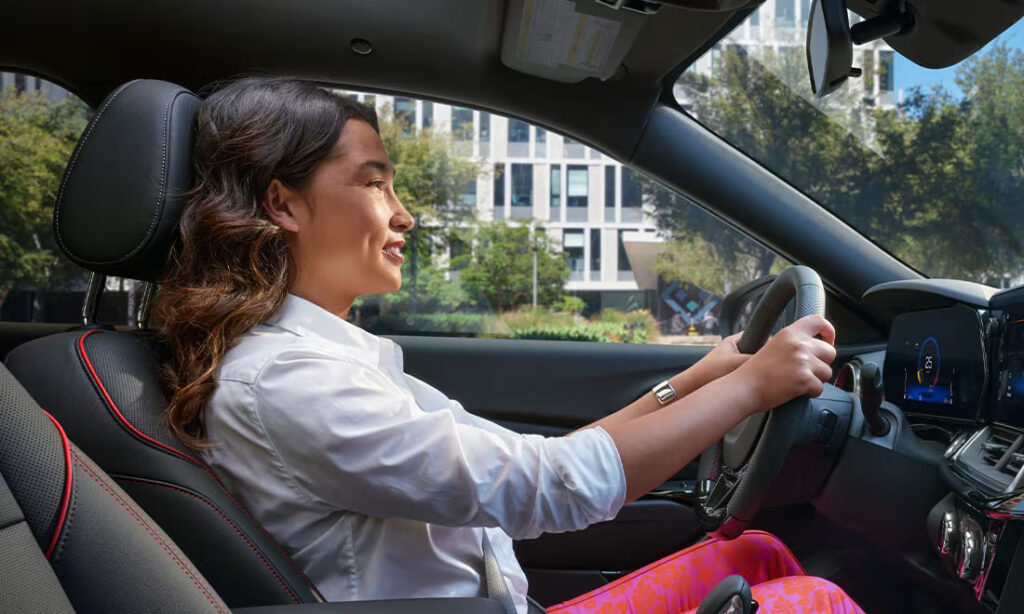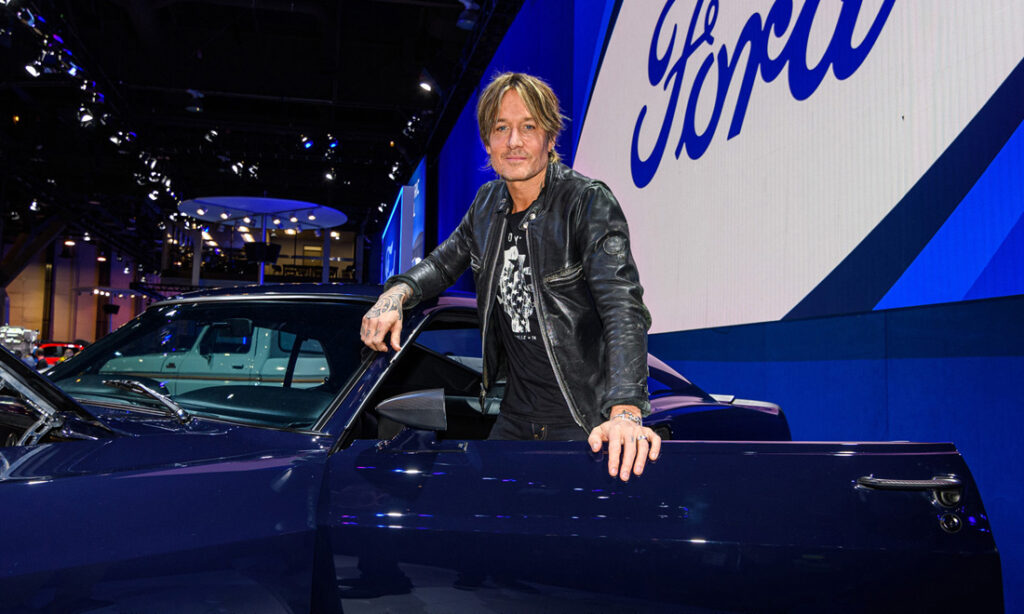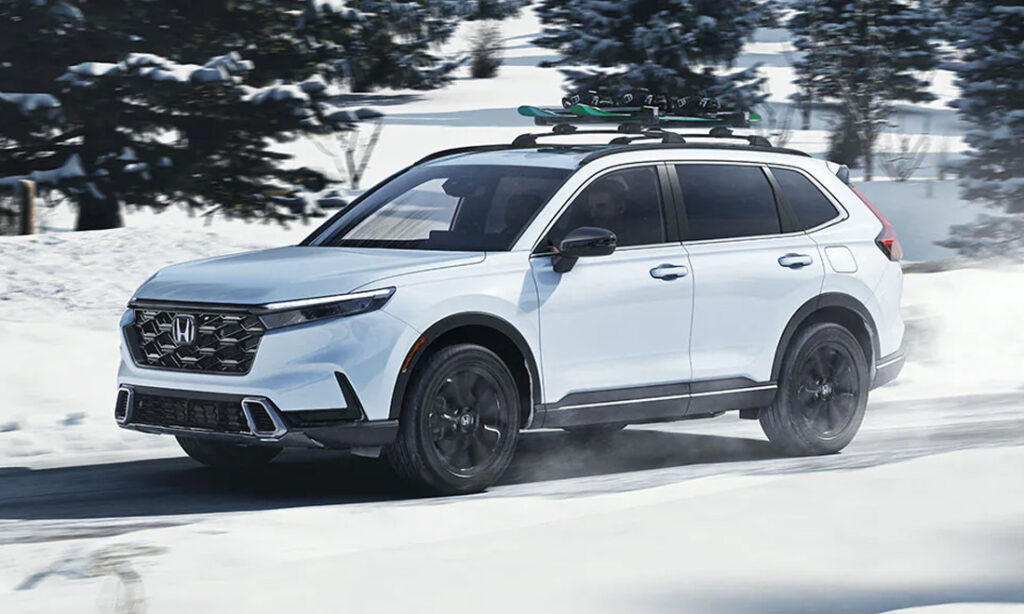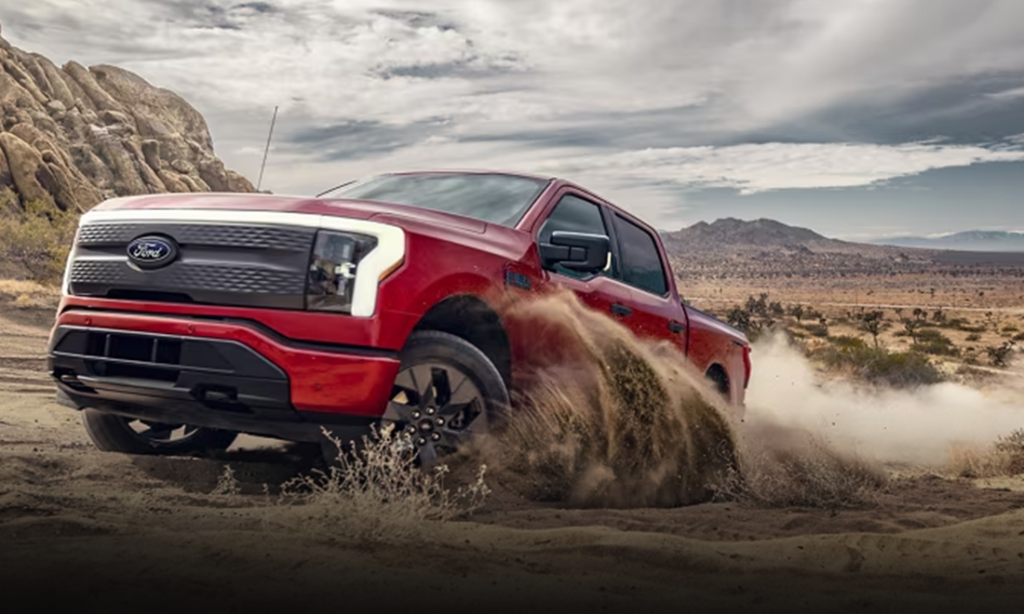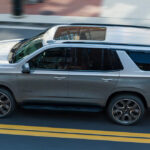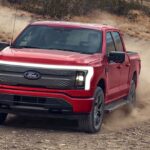2025 Ford Ranger vs 2025 Toyota Tacoma
We compare the Toyota Tacoma and the Ford Ranger to see which truck provides the most value for your dollar.
A Tale of Two Pickup Trucks
The Toyota Tacoma continues to dominate the mid-size truck market. Its all-new fourth generation debuted last year, bringing a hybrid powertrain, a more rugged exterior, and updated interior tech. The 2025 Ford Ranger, meanwhile, marks a significant evolution from its 2019 reintroduction. With its own generational update last year, the Ranger now offers a stronger engine lineup and introduces the off-road-ready Ranger Raptor.
Will these upgrades be enough for the Ranger to challenge Tacoma’s long-standing dominance? Let’s break down the specs and features to see which mid-size pickup delivers the best value.
Specs
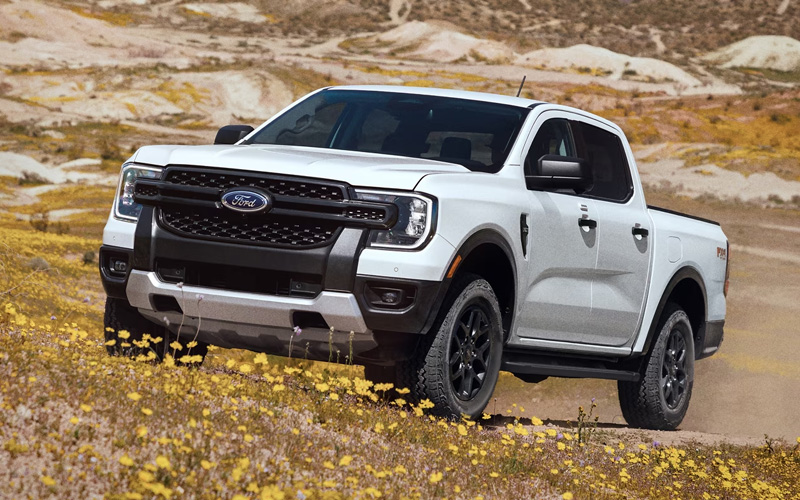
Regardless of the trim, each 2025 Tacoma rocks a 2.4-liter inline four-cylinder engine with a choice of rear or four-wheel drive. In the base SR trim, it brings you 228 horsepower and 243 lb-ft of torque. In the SR5 trims and above, you get 278 horsepower and 317 lb-ft to work with. If you want, you can add a 1.87 kWh nickel metal-hydride battery pack and two electric motors as a part of the i-FORCE MAX hybrid drivetrain. It jets 326 hp and 465 lb-ft of torque, and both are paired to an eight-speed automatic gearbox.
As for Team Ranger? There is a bit more variety in its engine range. The base XL trim through the Lariat trim has a standard 2.3-liter turbocharged EcoBoost four-cylinder with 270 hp and 310 lb-ft at its disposal. As an option, you can upgrade to a 2.7-liter twin-turbo V6 Ecoboost engine. The larger engine nets 315 hp and 400 lb-ft of torque, but Ford’s not done yet. The hot-shot Ford Ranger Raptor tops the charts with a three-liter twin-turbo EcoBoost V6 with 405 horsepower and 430 lb-ft of torque. It’s all paired to a ten-speed automatic transmission, one developed in collaboration with GM, of all people.
Driving and Performance

If you judge the Ranger or Tacoma on their ability to fling around corners or accelerate in a straight line, you’re bound to be disappointed. Save for the Ranger Raptor and Tacoma TRD Pro that thrive on big dunes and medium-sized jumps, the rest of the range is fairly typical drive-wise. Still, the peppy twin-turbo EcoBoost motor is a real highway cruising champ, far more so than any Tacoma drivetrain.
There are a few differences between critical categories like towing capacity and fuel economy. A base-motor non-hybrid Tacoma nets 23 combined MPGs when equipped with just two drive wheels. It stays around that range for fuel economy with the hybrid drivetrain, but with a noticeable increase in power and torque. Towing for the Tacoma maxes out at 6,500lb when properly equipped.
The Ranger counters with a 7,500-pound tow rating, paired with a 1,788-lb bed capacity. That’s to the tune of 23 MPG combined with a rear-drive base Ranger, and around 17 MPG combined in the Ranger Raptor. Keep in mind, the Raptor trim won’t tow or haul quite as much as the rest. If the most efficient-performing pickup drivetrain in its class is what you’re after, the Tacoma wins the day easily. In terms of offroad fun, it’s the Ranger that beats out the Tacoma handily. It’s all a matter of preference, yet again.
Trims and Features
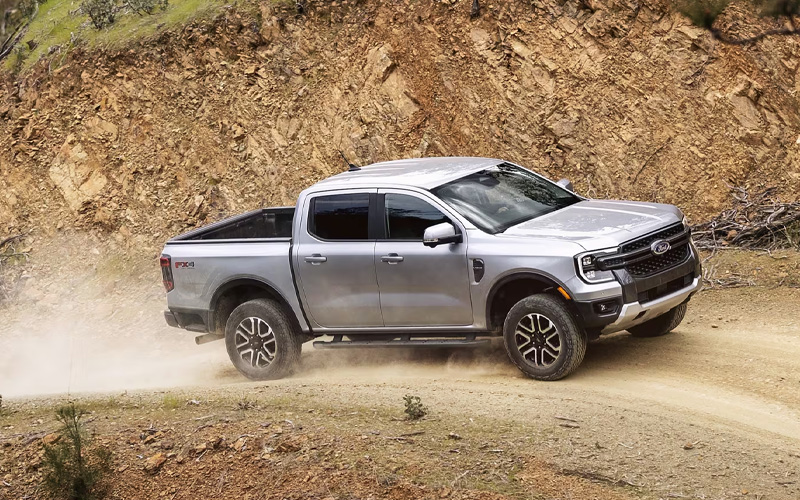
Either way you slice it, the Ranger and Tacoma are two powerhouses in the tech and features department. That said, the Ranger doesn’t quite have the trim selectability the Tacoma takes advantage of. The Tacoma’s base SR trim starts at $31,590 and nets you steel wheels and cloth seating, but leaves most of the other creature comforts intact.
The SR5 trim at $36,220 adds a six-speaker stereo, 17-inch alloy wheels, and a class-IV trailering system. From there, a successive series of TRD Pro offerings, the PreRunner, Sport, and Off-Road ($38,120, $39,400, $41,800), offer a 4×4-focused driving experience with bespoke interiors, a digital gauge cluster, and exterior trim pieces for each. At which point, the $52,555 Limited trim, the king of the non-TRD, non-Hybrid Tacoma lineup, comes at us with adaptive dampers and chromed trim pieces outside. Plus, power-folding running boards and a power-sliding rear window.
For most mid-size trucks, that’d be a robust trim lineup. But Toyota is second only to Jeep in total trim overload and continues with i-FORCE MAX editions of the TRD Sport and Off-Road, plus the Limited Trim ($46,320, $46,620, $55,880). Then, the Tacoma Trailhunter trim enters the fray with Old Man Emu shocks and 33-inch tires among other goodies. Finally, the range-topping TRD Pro trim at $63,735 adds Fox Shocks, unique exterior body cladding, and a front LED light bar that lets you know this is the mack-daddy Tacoma.
Meanwhile, the Ranger’s trim lineup is as simple as can be. The base Ranger XL starts at $33,080 and gives you 17-inch alloys, an eight-inch digital gauge cluster, and black cloth seats. One trim up, the XLT at $36,110 adds remote start, a sliding rear window, and plush carpets for the floors instead of the utilitarian weather-sealed rubber mats on the trim below. At $43,880, the Ranger Lariat trim adds connected navigation via a 12-inch center infotainment screen. It’s larger than the eight-inch standard screen in the Tacoma, but smaller than Toyota’s optional 14-inch upgraded touch screen.
At the top, the $55,820 Ranger Raptor adds the most powerful engine ever fitted to a mid-size Ford pickup, 33-inch all-terrain tires, and Fox Live Valve dampers. In effect, the Raptor’s trims and features share a common theme with the TRD Pro line of Tacomas, just with the features of three TRD Pro models rolled into one.
Comfort and Interior
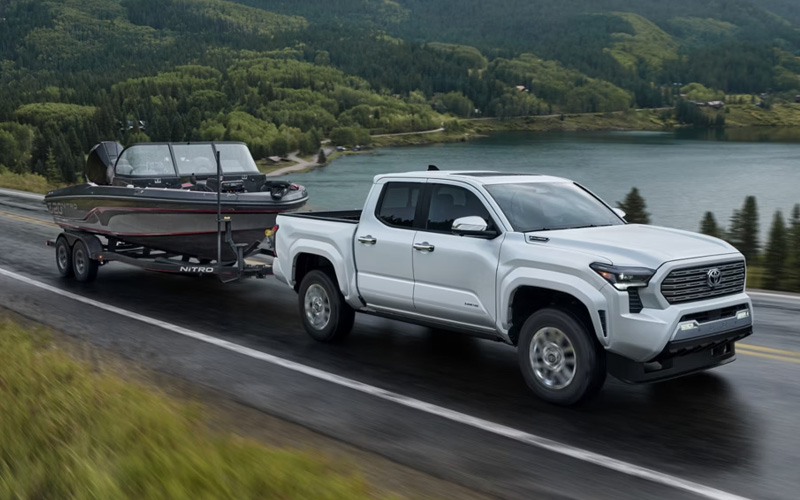
A 128.7-inch wheelbase on the part of the Ranger is matched by a 131-inch wheelbase in the Tacoma. Knowing this, both should lend well to interior space figures. Each 2025 Tacoma gives 33.7 inches of rear legroom for back-seat passengers, along with two bed sizes, a five-foot short bed, and a six-foot long bed.
For seat upholstery, a choice of either cloth or SofTex vegan leather offers you the option of durability or comfort. The Ranger counters with 34.5 inches of rear-seat legroom and a five-foot rear bed regardless of the trim. So, you get a little bit of extra space to stretch your legs, just with slightly less space to distribute the Ranger’s cargo capacity.
Starting with the Lariat model, you even get leather seats. It’s a luxury you won’t find with any Tacoma stock. By the slimmest of margins, the larger interior space of the Ranger, with a minor sacrifice in bed space, just beats out the Tacoma.
The Verdict
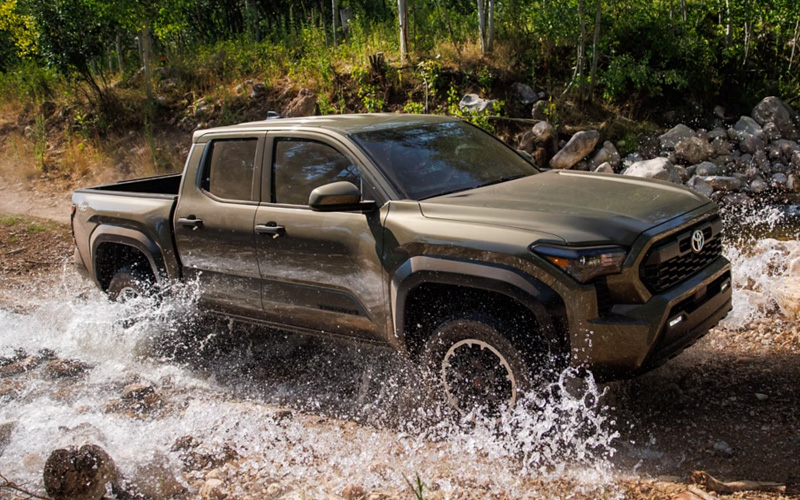
They may share a market space, similar dimensions, and even a similar ownership base, but the Ranger and the Tacoma approach this very differently. Sure, the TRD Pro line adds a cool factor to an otherwise stately pickup, but it just doesn’t have the same pizazz or flair for excitement as a Ranger Raptor.
By the same token, the Tacoma manages to best the Ranger in efficiency thanks to its optional hybrid drivetrain. Of course, the boost in fuel economy compared to other hybrid trucks isn’t quite as dramatic, but it should make a difference performance-wise. Simply put, the Ranger is a more fun truck to own and drive, while the Tacoma is, by and large, a more fuel-efficient choice that doesn’t sacrifice too much in the thrills its TRD line offers.
It’s a genuinely hard choice to pick between them, but more folks buy a pickup looking for a mix of reliability, fuel economy, and safety instead of pure performance. With that in mind, the Tacoma just barely manages to eek out the closest of victories.


